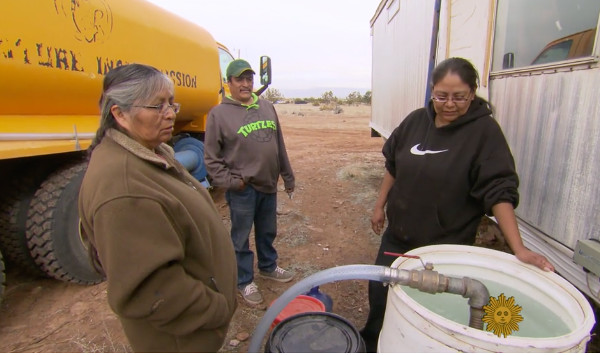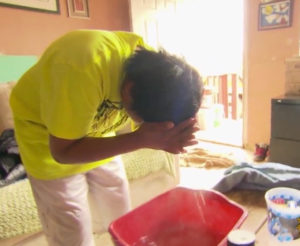
Below are excerpts from a longer article in High Country News: “Covid-19 impacts every corner of the Navajo Nation,” by Kalen Goodluck, May 19, 2020. https://bit.ly/covidimpnav
The coronavirus’s impact on the Navajo Nation has pushed the tribe’s public health system to its limits. Decades of negligence and billions of dollars in unmet need from the federal government have left tribal nations without basic infrastructure like running water and sewage systems, along with sparse internet access and an underfunded Indian Health Service. All this compounds the life-threatening danger the virus poses. Front-line workers endure shortages of protective equipment. Relief efforts have sprouted to gather and deliver food, water, cleaning supplies and other goods-all jobs the federal government is treaty-obligated to do.
As of May 18, the tribe’s infection rate has surpassed that of New York and New Jersey. On May 17, the Navajo Nation Department of Health documented 4,002 confirmed cases of Covid-19 and 140 deaths. As deputy commander for the Navajo Nation Incident Command Center, Lucinda Charleston is tasked with delivering aid, isolating the community and tracking the sick and vulnerable. “We know who our elders are, especially those who don’t have family support or limited support, those who have fixed income,” Martin said. Many of the families and elderly lack internet access, telephones and adequate cleaning supplies, as well as coal for heat or even enough food and water.
While tribes waited nearly six weeks for a limited, 60 percent distribution of the CARES Act $8 billion relief package, online fundraising campaigns sprang up around Indian Country to address immediate needs. The Navajo and Hopi Families Covid-19 Relief Fund has raised over $3.8 million to purchase bulk food and supplies – about $10,000 per community. “It seems like a lot of money, but it’s really not,” said Cassandra Begay (Diné), a spokesperson for the Fund. Sen. Tom Udall (D-N.M.) called the federal relief package “too little, too late” and demanded full release of funds to tribes in early May.

For decades, tribes, advocates and a handful of lawmakers have been calling attention to the drastic underfunding of the Indian Health Service and Indian Country’s lack of infrastructure. In 2003 and in 2018, the U.S. Civil Rights Commission found that tribal infrastructure was chronically underfunded by billions of dollars.
The Navajo Nation is currently facing scores of new coronavirus cases a day, but Charleston has not lost hope. “We can outlive this virus,” she said. “But we have to look at each step to be more creative.”
